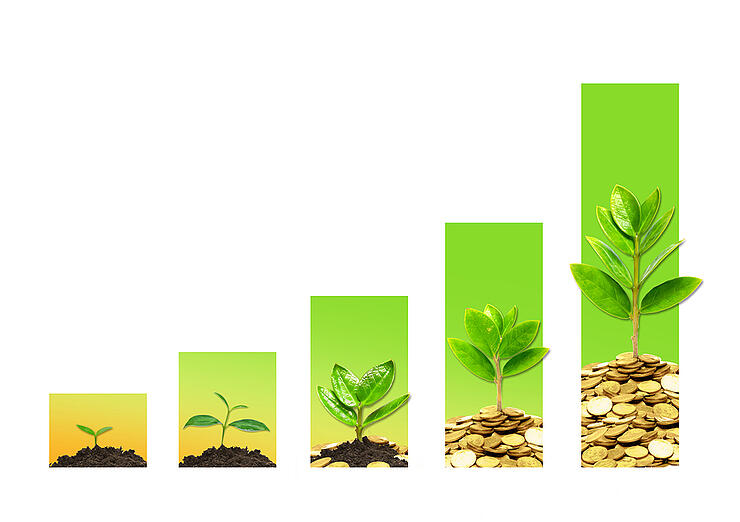Is recent political uncertainty and instability responsible for poor business sentiment, and if so, would a change of government mean light at the end of the tunnel? Here’s what some of Australia’s leading economists think.
Earlier this week, BlueChip attended the Asia-Pacific Banking & Finance ‘Breakfast with the Economists’. While the stated aim of the breakfast was to hear economic forecasts for the world’s major economies, the discussion among the leading economists on the panel turned inevitably to this week’s Federal Election and specifically, to whether a Coalition government might deliver an economic uptick.
The answer from Warren Hogan, Chief Economist for AMP, is: not necessarily – for a number of reasons.
First, the Australian economy has been undergoing a period of structural change in which there has been no growth outside mining for some time. Second, the hung Parliament meant that there was no policy clarity, regardless of which way you hoped the policy might go. In addition, business and consumer confidence is often depressed during an election campaign, so when the election originally was called six months ahead, this meant that confidence was depressed for longer.
Finally, and probably most importantly according to Mr Hogan, the election won’t change the fundamentals of the economy.
Nonetheless, he said, a bit of stability certainly won’t hurt.
Mr Hogan’s view is that a tarnished political reputation hasn’t helped our miners and other commodity exporters in the face of increasing competition from other countries. However, he does expect global infrastructure investment to stay elevated over the next 10 years, so if we can present a more stable and consistent policy picture to the world and work on productivity, there is no reason we won’t get our share.
Michael Blythe, Chief Economist at CBA, said that he believed lack of confidence was more closely related to soft income numbers from business. And, because soft income numbers mean that businesses are less likely to make capital expenditure or employment decisions, it’s hard to see growth picking up in the short term. It is his belief this is not likely to change overnight with a new, or even an old, government.
Although there is usually a bounce in optimism and confidence after an election, and despite many businesses welcoming the expected ‘business-friendly Coalition’, will there be any real increase in activity?
Not likely in the short term.
Interestingly, average returns per annum under a Coalition Government are 13% and under a Labor Government a smaller 10%. But the best returns of all came in the Hawke/Keating years, when the focus was on productivity and austerity.
This led to a view, which appeared to be shared by most panellists, that a bit of fiscal restraint wouldn’t go astray. A focus on productivity was seen as a better bet than looking to increase tax revenues to fund spending promises which the country can ill afford.
Rob Henderson, Chief Economist, Markets, at NAB, asserted that we don’t really have a revenue problem. In fact, revenue is at its long term average. According to Mr Henderson, our problem lies squarely on the expenditure side, and this is where a new government needs to focus. According to Mr Henderson, trying to bridge revenue gaps by placing additional burdens on taxpayers and businesses is flawed when the real problem is bloated social service programs and middle class welfare initiatives that have led to an entitlement mentality. Strong words indeed.
Attempting to collect more tax is not the answer, in Mr Henderson’s view. He held that while Australian governments of both persuasions are very good at collecting tax, but they are also far too good at redistributing it.
This wasn’t exactly the view of Warren Hogan, who maintained that if we are judging the Australian economy in terms of its ability to generate wealth and then redistribute it to the most vulnerable in society, then we are doing a pretty good job. Which is in his view a good thing.
He did say, however, that real tax reform is needed – but didn’t see a realistic possibility of either side of politics taking it on, as politically most of these issues are fraught with danger… and potential disaster.
He said that the problem is not so much that the economy is changing, but that the relationship of the economy to the budget is changing. And if we can get the operating environment right – that is, make the tax system fairer and more efficient – then all Australian businesses and the economy in general will benefit.
The answer, at least according to Mr Hogan, is to increase the GST to 12.5% across the board, and keep the revenue out of the hands of the States. He did laugh when he said this, acknowledging that politically, this strategy might prove a little difficult to sell.
The overall conclusion about the election?
That the Coalition was almost certain to win, and even if its specific policies are not likely to fundamentally change the status quo of the Australian economy, more certainty about government, leader and policy in Canberra would be a Very Good Thing.












